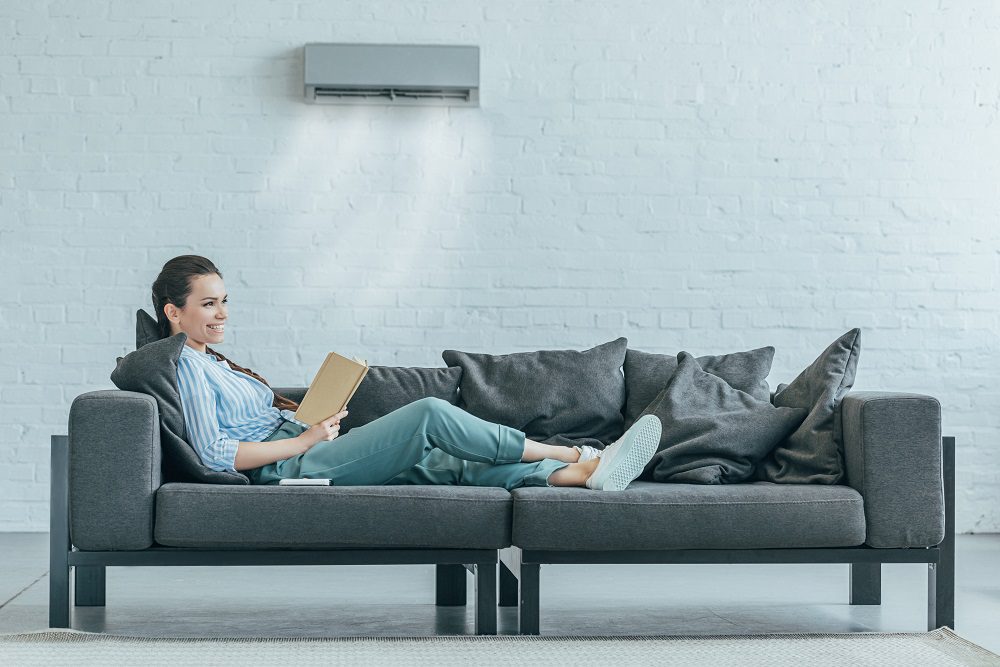Table Of Contents
Introduction
Air conditioning units are a staple of the modern home. It is no longer enough to have just windows and fans for fighting off the summer heat. Gone are the days of sweltering, stuffy homes in which no one could find relief from the intense summer heat. Air conditioners come in all shapes and sizes, ranging from window-mounted to whole-house systems that cool an entire building at once. The following article is a brief overview of some popular models on offer today, so you can make an informed decision about what type will be best for your needs before purchasing one.
Types of air conditioners that are now available.
There are different styles, sizes, and brands to choose from, so it can be hard to decide which one is right for you. This article is intended to help you understand your options when shopping for an air conditioner by comparing some of the most popular models on the market today. We’ll also take a look at what each type has to offer and how they compare in terms of price point and features on offer. Let’s explore!
What is an air conditioner, and how does it work?
Air conditioning is a system designed to maintain comfortable air and equipment conditions in a space. Air conditioners accomplish this by removing heat from the air like an evaporative cooler does by providing different types of cooling mechanisms, including cold water, dry ice, coolant coils, or any combination thereof.
The most common type of air conditioner is the room unit that sits outside your home. Cooled (and dehumidifier) air is sent through a series of ducts to different parts of your house, like vents and registers, where it’s finally forced into your living spaces through grilles.
Air conditioners work by removing moisture from the air and cooling that air down before releasing it into your rooms. This process reduces humidity to make your home feel more comfortable. Still, it does not lower the temperature of the air itself. So during humid months, you may notice a very minimal drop in room temperature.
There are also central units that are used within an entire building to provide climate control. These types of systems may include a furnace, humidifier, and air conditioner in one unit making it more convenient and efficient.
Different types of AC units are available
There are three main air conditioners that you can choose from: split system, portable, and central.
Window units provide cooling to the immediate area in which they’re installed. They’re typically the least expensive type of air conditioning unit and require the most installation time. Window units are not suited for large spaces. Generally, they need to be replaced every two years as their cooling mechanisms deteriorate over time.
Portable air conditioners can’t be used with other heating or cooling systems. They work by using a gas-powered engine to cool your room down before releasing it back into the space. This type of AC unit requires a lot of power, so it isn’t suited for people who are on a tight budget. Central air conditioners are the most expensive to install and run, but they can be used with forced-air systems like furnaces. They also provide cooling to the entire building, making them a good pick for businesses of all kinds, including offices.
Window or Split System AC’s
Although ductless or split systems air conditioning units are the least expensive and most common, they’re also the least efficient. A window unit can only cool one room or space at a time, which is fine when used during mild seasons but not so much during extreme summer heatwaves.
Window ACs usually come with a standard-sized window kit that’s difficult to install and remove. Once installed, you can generally expect the unit to last 2-4 years before needing replacement.
Window ACs have a lot of benefits as well, including:
- Convenient installation
- Good for small rooms or spaces
- Inexpensive to buy and maintain
These units are not well suited for large spaces or homes that receive a lot of sunlight. In addition, window units are loud, so your home will likely be filled with constant noise while the AC is running.
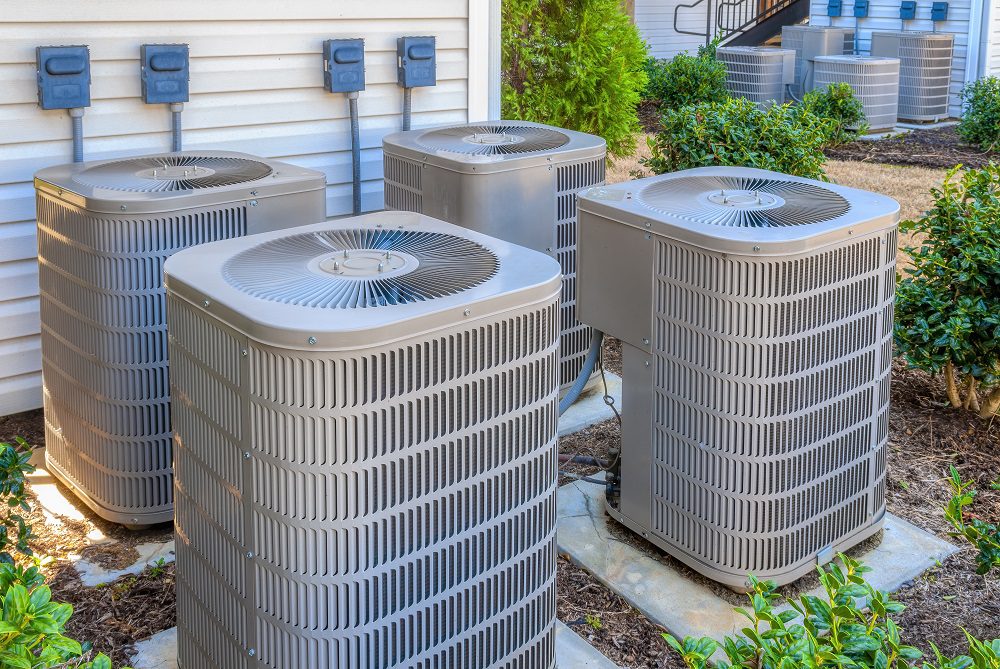
Portable Air Conditioners
The most common type of portable air conditioner is one made to cool a single room. They’re best used in rooms that have little to no insulation, like garages and closets. You can also use a portable AC unit in your home during mild seasons or after the thermostat has been set high for added cooling.
These units are very loud with plastic casings that rattle when the compressor is running, which means you may not want to use them if you’re trying to sleep.
They also require a window or vent for installation and take up valuable floor space, which can be very inconvenient in small rooms or homes.
In addition, they struggle to cool hot air during the summer months. They will only work as an efficient cooling solution when the temperature is between 50-90 degrees Fahrenheit.
Central Air Conditioners
Central air conditioners offer cooling for the entire building and can be used with other heating systems like furnaces. Central ACs have large, bulky units that sit outside a building and use condensers and coils to cool air before sending it through the ductwork into rooms.
These types of units are costly to install and run. Installing a central air conditioning unit can cost thousands of dollars. In contrast, the yearly costs of this type of AC unit are on par with other heating and cooling options.
Central air conditioners have an expected lifespan of around 15 years. Still, they may need repair or maintenance throughout the years as some internal components become worn out.
Advantages and disadvantages of different types of ACs
Each AC has its own advantages and disadvantages, making them more or less suitable for a particular situation. Let’s take a look at some of the main advantages and disadvantages of the models on the market today:
Air Conditioning Units come in different varieties. Here are some of the most popular models for now:
Window Air Conditioner
These are well suited for homes without central air conditioning systems, second homes, smaller spaces, cabins, or other areas of your home where additional cooling is desired. Still, there isn’t much space to install a larger unit. These units typically come with manual controls and need to be placed inside an open window.
They can produce up to 12000 BTUs while drawing around 210 watts of power. They can cool a room that is approximately 500 square feet, making them ideal for smaller rooms or spaces without many obstructions. These units also have extended warranties with some lasting up to 10 years which adds value. On the other hand, they are noisier than larger ACs. Their performance may be affected by opening windows nearby or outside breezes.
Evaporative Cooler
Evaporative coolers stand out for their low cost and ease of use. They are very quiet, so they won’t interfere with your life or sleep patterns. They also don’t have any filters to replace, which saves you money in the long run. They can be installed in most windows and offer up to 12000 BTUs. They work by drawing in fresh outside air, passing it over a wet pad, and then blowing this cool air back into the room.
This system is simple, inexpensive and easy to work with, but it isn’t as effective at cooling the air in large rooms. Even though evaporative coolers don’t have any moving parts, they require a power source, which means you’ll have to run an extension cord or install a nearby outlet. They also need a dedicated space where their water tank can collect the used water, limiting where they are placed. This unit also only works during dry periods, so you can’t count on it being in place if you live somewhere that gets a lot of rain or humidity.
Central Air Conditioner
A central air conditioner typically comes with a large compressor installed outside the home. They usually come with remote controls and timer functions, so you can program them to turn on before you arrive home or while you sleep. The compressors are much larger and more powerful than typical wall units, which can cool your home faster and more efficiently.
On the downside, they are somewhat noisier than window units since they are powerful enough to cool your entire home. In addition, you will need to have a contractor install one of these, which can be expensive and take several hours. Central ACs also require professional maintenance once per year, so you’ll need to factor in these costs when considering this system. They also require a steady power source which means you can’t count on them being available during a storm or other significant weather events that cause your electricity to go out.
Central ACs are an excellent option for those who want a powerful and efficient machine, but they do come with some disadvantages. Central ACs typically don’t have any circulating filters to maintain, but this is often an area of concern because they need to be serviced annually. These units also require a steady power source. When the electricity goes out during storms or other significant weather events, these units won’t be able to help you cool your home.
Split System Air Conditioner
Split systems are similar to central air conditioning units but are typically installed in smaller, individual rooms. The system installs through a wall or window and is attached to the interior wall.
Split system air conditioning is typically installed in rooms rather than in the home’s ductwork, saving space for major appliances while helping to save energy on your cooling bill since they’re usually more efficient than window units. They are also more expensive than window units but are generally easier to install and provide a longer lifespan.
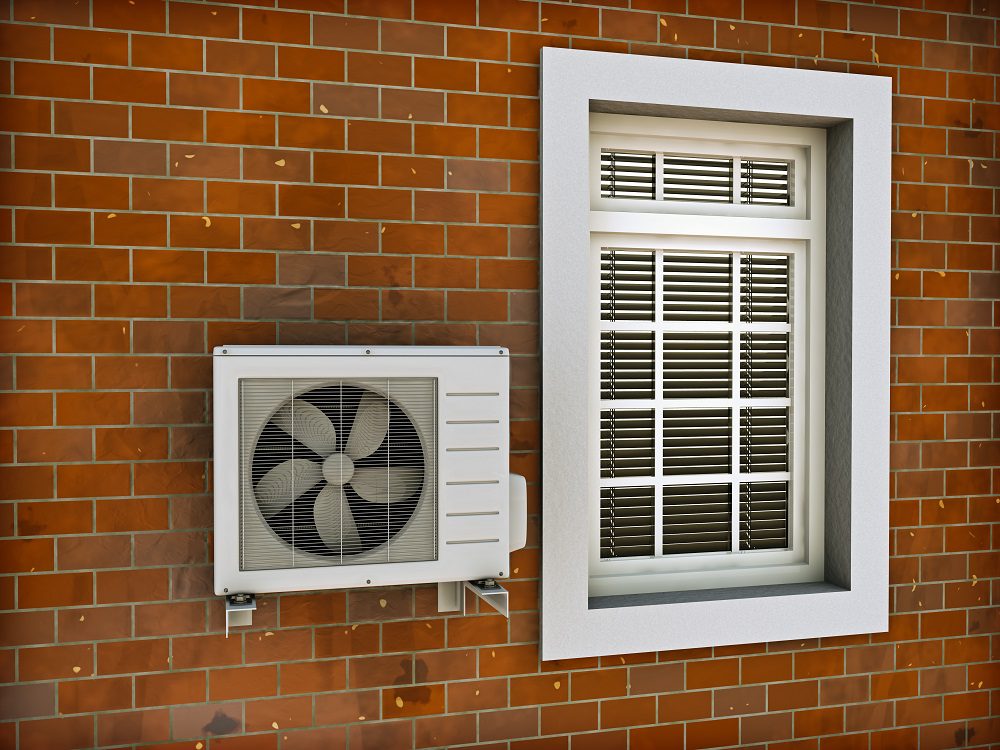
Ductless Split Systems
These AC units are similar to split systems, but the compressor and outdoor condenser unit is mounted on the exterior of your home rather than inside.
Ductless AC units have an indoor coil and a sizeable outdoor condenser connected by copper tubing or refrigerant lines – no ductwork is needed, making them great for retrofitting into older homes built without AC ducts.
Portable Air Conditioner
This type of AC is a self-contained unit that makes them easy to install without connecting it to ducting or vents. They can be moved from room to room but aren’t as energy efficient as split systems.
How to choose the best type for your needs
The type of air conditioning unit you choose should depend on the size, location, and usage of the room it will be in and your budget. If you live in a home with more than one or two bedrooms, you’ll need a large window or wall mounted AC unit. However, if your household only has 1-2 people, a small pedestal AC unit would be adequate. In general, wall-mounted AC units are better for cooling larger spaces because they offer higher efficiency. Window units are better suited for smaller areas because they tend to be cheaper and can be easily moved from room to room.
The air conditioning unit you choose may be the most expensive appliance in your home. But it’s also one of the most important, as it makes all the difference in comfort level during those hot summer months and can help reduce your energy costs when run efficiently.
Important features you should look for when purchasing an air conditioning unit.
- Energy efficiency (this is a big one)
- Ease of installation and use
- Keep cool in the summer heat.
- Save money on your energy bill.
- The brand name (some are better than others)
- Warranties and guarantees
- More bells and whistles may mean a higher price point.
When purchasing a new air conditioning unit, the best advice is to determine your needs, measure the room you’re looking to cool (if it’s not already), and present any questions or concerns to staff at your local appliance store. Don’t be afraid to ask for help in making your decision.
If you’re still unsure, hire a professional installer for peace of mind and save yourself the headache. If all else fails, read reviews online or on product sites for feedback from other people who have purchased the same unit.
FAQ
Can an air conditioner cause health problems?
The answer is yes, an air conditioner can cause health problems; however, the severity of the health problem varies from person to person.
Suppose you have asthma or any other breathing disorder. In that case, you should be aware that some air conditioners can trigger or worsen your symptoms. That’s because they emit dust and bacteria into the air that can aggravate your symptoms.
Some people with allergies may also find that an air conditioner triggers their symptoms. To keep this from happening, make sure to buy a high-quality unit with a sound filter system that traps particles before they’re circulated throughout the room. In addition to this, it might be wise to turn off your AC if you’re cleaning or cooking.
Do all air conditioners have coolant?
Yes, all air conditioners have cooling units. These units use a refrigerant to cool the air. They operate in much the same way as an ice cooler or your refrigerator.
How many BTUs should I be looking for in my AC unit?
The answer to the question will depend on what you need your AC unit for, as well as the size of your home. If you want a unit that cools one room or a small condominium, you’ll need about 5,000 BTUs. You’ll need to buy a unit with 50,000 BTUs plus for a larger home or office building.
Suppose you’re looking for an air conditioner that can quickly generate cold air. In that case, you should aim for something with at least 8,000 BTUs per hour of cooling capacity.
What is the best size/brand of AC unit for me?
The best size/brand of AC unit for you depends on many factors. There are three primary considerations when sizing a central air system:
- living space, square footage (ceiling height) of the dwelling
- number of people in your household
- type and placement of windows.
It is also essential to consider whether one or two units would be better suited to accommodate your needs. Single units are typically more energy efficient. However, suppose your desired living space is too large for a single unit. In that case, you may want to consider purchasing 2 units that run independently instead, providing more cooling capacity than 1 single unit operating at total capacity.
Theoretically speaking, correctly choosing an air conditioner can prevent costly repairs, optimise cooling or heating, save on power bills and prolong the lifespan of the air conditioning system.
If you choose to mount your unit on the wall, you may not need an electrician. However, suppose you want to install it on a window or other place where mounting is impossible. In that case, your contractor can get an electrician to help with installation. The cost of getting an electrician is minimal and varies on location but can be well worth it for more complicated installations!
Is there any kind of warranty offered on these units, and from who?
When investing in a new air conditioner, it is always advisable to check the warranty terms and conditions. Many different factors can change the price of an air conditioner, and the higher-priced units will have better warranties and cover more parts. It’s worth getting one if you don’t want to do any work yourself! You may need to get an electrician for more complicated installations.
Why we are the best air conditioning installation company in North Brisbane & Sunshine Coast?
The answer is simple – we’re the best Brisbane Air Conditioning installation company because of our years of experience, understanding, and excellent customer service!
We boast exceptional service through efficient use of resources while balancing innovative solutions with environmental responsibility. We strive to be a top-notch HVAC firm that aims for nothing but our clients’ satisfaction by going above and beyond.
Our end goal is to provide exceptional heating or cooling services that minimise your energy consumption without compromising total comfort and convenience. At On Electrical Contractors in Brisbane Northside, Moreton Bay and Sunshine Coast, we value having close interactions with all individuals involved in attaining complete client satisfaction. From initial contact to project completion – valuing transparency at all times.
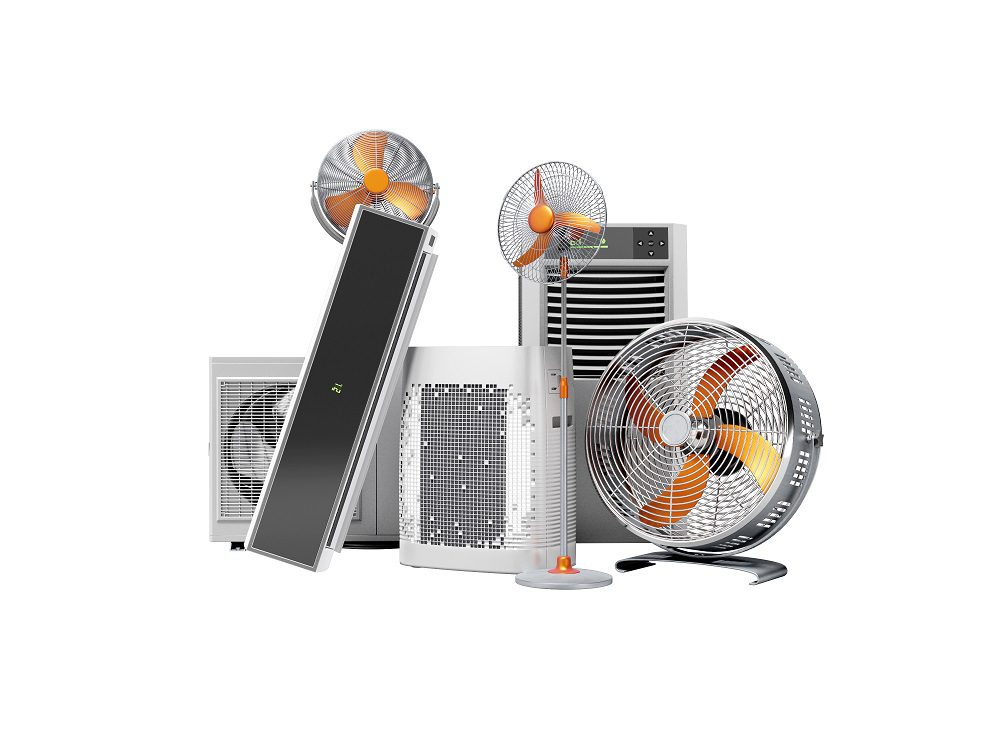
A company that values transparency at all times.
We make sure we understand what you are looking for and then provide a breakdown of what is required to complete this task compared to other companies operating in Brisbane Northside, Moreton Bay, or Sunshine Coast areas. This means we are always upfront about arrangements and payments, so there are no unexpected surprises later down the road.
Air conditioning installation service in Brisbane Northside, Moreton Bay or Sunshine Coast area On Electrical Contractors has extensive experience with residential and commercial installations! Meaning they can get your new unit up and running in no time! We will never downplay the cost of our service and allow you to be aware of every part of the process, ensuring you have all information needed to make the best decision about your situation.
Why choose On Electrical Contractors for your air conditioning installation project?
Here are four reasons why you should choose us over other service providers.
Free consultation
we will provide a free consultation to study your situation and then offer the best option suitable for your needs. We realise that different installations have different needs and requirements, so we offer a free consultation to make sure you get the precise service that fits your needs!
Flexible scheduling
Because we know that every situation and installation project is different, our technicians can provide flexible scheduling. We can schedule our work at a convenient time for you rather than adhere to a strict time frame.
24/7 After Hours Emergency Electrician
We offer a 24/7 emergency electrician service to ensure that you can get the help you require regardless of the time of day or night! We realise that emergencies do happen, so our technicians are always on standby and ready to be dispatched at any given moment!
Competitive prices
At On Electrical Contractors, we offer competitive prices to ensure that you don’t have to break the bank to get your service done! We understand that air conditioning installation costs can vary significantly depending on various factors, so our goal is to provide you with the best pricing without sacrificing quality workmanship or parts.
When it comes to air conditioning installation in Brisbane Northside, Moreton Bay or Sunshine Coast area.
On Electrical Contractors is the only name you need to know! We are a full-service company capable of providing complete air conditioning installation solutions while adhering to our core principles. We guarantee professional and efficient customer service while specialising in getting your unit installed as quickly as possible without compromising quality.
